
- 記事一覧
- ゲストライター記事一覧
- Social Skills Education for Migrants to Japan 日本の移民のためのソーシャルスキル教育
Social Skills Education for Migrants to Japan 日本の移民のためのソーシャルスキル教育

日本語訳は英文の後に掲載しています。
Although immigration has always been a global phenomenon, the increasing speed of transportation in recent decades has made cross-border mobility much easier. People migrate for a variety of reasons, including the prospect of better living circumstances, job relocation, and sociopolitical exile or asylum-seeking. Immigration may have culturally enriching benefits and innovation for host countries as well, such as increasing their work supply (Maywalt Scottham & Dias, 2010). The number of immigrants has been growing every year in Japan and there are 2,933,137 registered immigrants in the country as of December 2019 (the Portal Site of Official Statistics of Japan [e-Stat], 2020).
Japan’s total population has been falling due to low birth rates. The elderly population (aged 65 and above) reached 35.89 million in 2019, accounting for 28.4% of the total population (one out of every four individuals) reaching a new high (Statistics Bureau of Japan, 2020). Labor shortages are predicted to increase as Japan’s population decreases by one-fifth to about 100 million by 2050; the elderly population is expected to rise from 28% to 38% (Jones & Seitani, 2019). As a result, not only for their own well-being, but also for Japanese society and work life, these immigrants’ integration becomes critical.
Although some factors may persuade individuals to immigrate to a certain nation, adjusting to a new culture may still be required for a certain period for a successful transition. This time is marked by social, cultural, and emotional changes. Psychological (emotional/affective) and sociocultural (behavioral) changes are seen to represent two separate factors of cross-cultural adjustment. Although psychological adjustment and sociocultural adjustment are related, they are separated. They are influenced by different types of factors. Personality, life changes, and social support factors have been linked to psychological adjustment, whereas expectations and perceived cultural distance have been linked to sociocultural adjustment. In other words, although psychological well-being is more closely tied to clinical characteristics, the development of social skills is linked to social learning and cognitive factors (Searle & Ward, 1990).
Despite the fact that there is no adequate single definition of social skills and a variety of skills are labeled as social skills, many social skill researchers agree that social skills are performed by the basic sending and receiving of information (Riggio, 1986). Basic social skills are thought to be learned social abilities and strategies; thus, the term skill is used broadly (Riggio, 1986, p. 650). Social skills are the norms, customs, and assumptions that govern interpersonal contact, especially verbal and nonverbal communication, and they differ among cultures (Argyle, 1994).
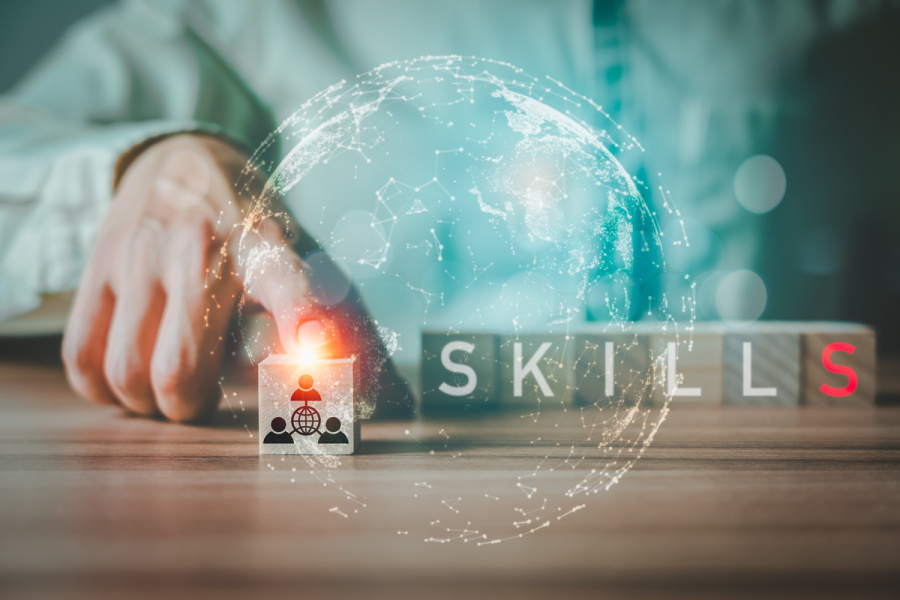
Cross-cultural contacts result in culture-specific stress that is distinctive to a particular cultural setting (Tanaka, 2005). One implication is that migrants without culturally relevant social skills and knowledge will have difficulty establishing and maintaining harmonious relationships with their hosts, or, in the case of immigrants, with mainstream members. Misunderstandings and offenses may result from migrants' behaviors that are seen as inappropriate in certain cultures. People with poor cultural skills are less likely to achieve their career and personal objectives, according to research. Migrant directors, for example, may push away local partners and lose market share. International students may fail to complete courses. Hospitality industry workers may offend visitors, and migrants' career chances may be severely damaged (Argyle, 1994).
Thus, it is important to have cultural contact with local people and learn the culture-specific behaviors to achieve cross-cultural adjustment. For example, Bochner (2003) performed research on the social networks of diverse groups of migrants to establish that low social skills have negative consequences, which are exacerbated by the cultural divide between the visitor's (or minority's) culture and the host's culture (or majority). He suggests that the amount to which migrants have host-culture friends is a significant factor in their adjustment, because these friends operate as informal culture-skills teachers. Visitors who mostly interacted with co-nationals underperformed on a variety of measures compared to those who had developed meaningful ties with their hosts.
Learning the historical, philosophical, and socio-political underpinnings of the target society, as well as internalizing corresponding behaviors, are essential skills and knowledge for an individual to perform well in a second-culture context. By blaming competency rather than personality for the individual's lack of adaptation to the second-culture setting, the individual is relieved of the embarrassment that comes with it. Furthermore, gaining new talents is less difficult than changing one's personality (Bochner, 2003).
Learned communication abilities are referred to as basic social skills. By learning these social skills, people can improve fundamental abilities. With practice and instruction in the basic aspects of social skills and in the interrelationships of social skills, people can build more effective social performances (Riggio, 1986). Individuals' particular social challenges will be discovered during social skills training, and they will be given the information and social skills they need to engage effectively (Chapdelaine & Alexitch, 2004).

A study was undertaken on foreign people's socio-cultural adaptability, adjustment (psychological and international), social skills, cultural involvement, and cultural intelligence (Wilson, Ward, Fetvadjiev & Bethel, 2017). Data was obtained from 316 people (foreign students, immigrants, and refugees aged 16 and above who had been residing in the host country for less than five years at the time of the study). Sociocultural adaptation was found to be connected with social skills, cultural involvement, and cultural intelligence in a favorable and substantial way. Social abilities were also discovered to be closely connected to social contact. Individuals were more likely to develop sociocultural adjustment issues as their cultural distance rose, according to another study. This finding revealed a corresponding rise in both cultural gap and the difficulty of developing required social skills as a result of this finding (Searle & Ward, 1990).
Tanaka (2012) organized a cross-cultural psycho-educational workshop to help overseas students studying in Japan gain cross-cultural social skills. The curriculum was created to give cognitive and behavioral learning of culturally unique interpersonal interaction practices. The replies of the students were taken during the program, shortly afterward, and one year afterwards. As a short-term result of the program, the students reported growing cultural awareness and a stronger knowledge of the host culture. They also said they learned new social skills, which improved their self-efficacy and made them feel better. Participants reported practicing some of the social skills they gained in the workshop one year later, depending on the setting and chances.
It is proposed that the psycho-educational program be utilized as a technique to aid migrants' cross-cultural integration in Japan. Migrants might use the social skills they gain in the program to strengthen their relationships with host people and their cultural adjustment. A psycho-educational program might aid migrants' psychological adjustment by teaching them the required social skills to prevent misunderstandings with their hosts. They may feel at ease in unexpected situations and gain self-awareness through gaining basic social skills. As a result, Japanese organizations can give psychoeducational programs to migrants to help them gain social skills as well as techniques to cope with social difficulties during cross-cultural adjustment. As Japan has established a new status of residence called “Specified Skilled Worker” to give foreign nationals more opportunities to work in Japan, the number of migrant residents is expected to increase in the near future. Although migrants to be admitted are required to have basic Japanese language skills, government institutions as well as private organizations and companies in which these workers are employed should have private psycho-educational programs in addition to language support to migrants. These programs should also be open to Japanese people who want to gain awareness of cultural differences and acquire relevant skills for mutual understanding. These kinds of educational programs which include both migrants and hosts are essential to create an inclusive society.
References
Argyle, M. (1994). The psychology of interpersonal behavior. UK: Penguin Books, Ltd.
Bochner, S. (2003). Culture shock due to contact with unfamiliar cultures. Online Readings in Psychology and Culture, 8(1). https://doi.org/10.9707/2307-0919.1073
Chapdelaine, R. F., & Alexitch, L. R. (2004). Social skills difficulty: Model of culture shock for international graduate students. Journal of College Student Development, 45(2), 167–184. https://doi.org/10.1353/csd.2004.0021
Jones, R. S., & Seitani, H. (2019). Labour market reform in Japan to cope with a shrinking and ageing population. OECD Economics Department Working Papers No. 1568, 37, 3-54.
Maywalt Scottham, K., & Dias, R. D. (2010). Acculturative Strategies and the Psychological Adaptation of Brazilian Migrants to Japan. Identity: An International Journal of Theory and Research, 10, 284-303.
The Portal Site of Official Statistics of Japan (e-Stat) (2020). Statistics on Foreign Residents (former Statistics on Registered Foreigners). Retrieved from https://www.e-stat.go.jp/stat-search/files?page=1&layout=datalist&toukei=00250012&tstat=000001018034&cycle=1&year=20200&month=12040606&tclass1=000001060399&stat_infid=000032030590&tclass2val=0 (in Japanese)
Riggio, R. E. (1986). Assessment of Basic Social Skills. Journal of Personality and Social Psychology, 51(3), 649–660. https://doi.org/10.1037/0022-3514.51.3.649
Searle, W. & Ward, C. (1990). The prediction of psychological and sociocultural adjustment during cross-cultural transitions. International Journal of Intercultural Relations, 14, 449–464. https://doi.org/10.1016/0147-1767(90)90030-Z
Statistics Bureau of Japan (2020). Statistical Handbook of Japan. Retrieved from https://www.stat.go.jp/english/data/handbook/c0117.html
Tanaka, T. (2005). Stress of cross-cultural encounters. Japanese Journal of Stress Science, 19(4), 230-236.
Tanaka, T. (2012). A cross-cultural social psycho-educational program for cross-cultural social skills learning to international students in Japan: Focusing on the auc-gs learning model. Japanese Journal of Applied Psychology, 38, 76–82.
移民は常に世界的な現象でしたが、ここ数十年の交通手段の高速化により、国境を越えた移動がはるかに容易になりました。人々は、より良い生活環境が得られるという期待、あるいは転職、社会政治的亡命または庇護を求めてなど、さまざまな理由で移住します。移民は、受け入れ国にとっても、労働供給の増加など、文化的に豊かな利益と革新をもたらす可能性があります(Maywalt Scottham&Dias、2010)。日本では移民の数が年々増加しており、2019年12月現在、国内には2,933,137人の在留外国人がいます(日本の公的統計ポータルサイト[e-Stat]、2020年)。
日本は、少子化の影響により総人口が減少し高齢化が進んでいます。 2019年の高齢者人口(65歳以上)は3,589万人に達し、総人口の28.4%(4人に1人)を占め、過去最高水準に達しています(統計局、2020年)。日本の人口が2050年までに5分の1減少して約1億人になると、労働力不足はますます深刻化し、高齢者人口は28%から38%に増加すると予想されています(Jones&Seitani、2019)。その結果、高齢者自身の幸福のためだけでなく、日本の社会全体、多くの人の仕事と生活のためにも、移民の統合は重要になります。
ある国への移住を決断させる要因はいくつかありますが、移住を成功させるためには、新しい文化に適応するための一定の期間が必要です。この期間は、社会的、文化的、そして感情的な変化が顕著です。異文化適応は、心理(感情・情動)的な変化と社会文化(行動)的な変化の2つの要因に分けられると考えられています。心理的適応と社会文化的適応は関連していますが、これらは別のものです。両者は異なるタイプの要因に影響されます。心理的適応には性格、生活変化、社会的支援要因が、社会文化的適応には期待や文化的距離の知覚が影響しているとされています。つまり、心理的な幸福は臨床的な特徴とより密接に結びついていますが、社会技能(ソーシャルスキル)の発達は社会的学習や認知的な要因と結びついているということです(Searle&Ward、1990)。
社会技能(ソーシャルスキル)の適切な単一の定義がなく、さまざまなスキルがソーシャルスキルと呼ばれているにもかかわらず、多くの研究者は、ソーシャルスキルが基本的な情報の送受信によって行われるという点で一致しています(Riggio、1986)。基本的なソーシャルスキルは、学習された社会的能力や戦略であると考えられており、したがって、スキルという用語は広く使用されています(Riggio、1986、p。650)。ソーシャルスキルは、対人関係、特に言語的・非言語的コミュニケーションを決める規範、習慣、前提のことであり、文化によって異なります(Argyle、1994)。
異文化間の接触は、特定の文化的環境に特有のストレスをもたらします(田中、2005)。その意味するところは、その文化に合うソーシャルスキルや知識を持たない移住者は、受け入れ側、あるいは移民の場合は主流派との調和のとれた関係を確立し維持するのが難しいということです。特定の文化圏では不適切と見なされる移民の行動から、誤解や犯罪が生じる可能性があります。調査によると、文化的スキルが低い人は、キャリアや個人的な目的を達成する可能性が低くなります。たとえば、移民の経営者は地元のパートナーを押しのけてしまうことで市場シェアを失うかもしれません。留学生はコースを修了できず、接客業の労働者は客を不快にさせ、移民のキャリアチャンスは大きく損なわれる可能性があります(Argyle、1994)。
したがって、異文化適応を実現するためには、現地の人々と文化的な接触を持ち、文化特有の行動を学ぶことが重要です。たとえば、Bochner(2003)は、多様な移民グループの社会的ネットワークに関する調査を行い、低いソーシャルスキルがネガティブな結果をもたらし、それは移民(または少数派)の文化と受け入れ側(または多数派)の間にある文化的格差によって悪化することを立証しました。彼は、移民にどれだけホストカルチャーの友人がいるかが、彼らの適応に大きな影響を与えると示唆しています。なぜなら、友人がいることによって非公式のカルチャースキルの教師として機能するからです。同じ国籍の人との交流が多い移民は、ホストと有意義な関係を築いた人たちと比較して、さまざまな指標で成果を上げていませんでした。
対象となる社会の歴史的、哲学的、社会政治的な背景を学び、それに対応する行動を内面化することは、個人が第二文化圏の中でうまくやっていくために不可欠なスキルと知識です。個人が第二文化圏に適応できない要因を、性格ではなく能力のせいにすることで、本人はそれに伴う戸惑いから解放されます。さらに、新しい能力を身につけることは、性格を変えることほど難しくありません(Bochner、2003)。
習得したコミュニケーション能力は、基本的なソーシャルスキルと呼ばれます。このソーシャルスキルを習得することで、人は基礎的な能力を向上させることができます。ソーシャルスキルの基本的な側面とソーシャルスキルの相互関係について練習と指導を行うことにより、人々はより効果的な社会的パフォーマンスを構築することができます(Riggio、1986)。ソーシャルスキルトレーニングにより、個人の社会的課題が見つかり、効果的な情報とソーシャルスキルを得ることができます(Chapdelaine&Alexitch、2004)。
外国人の社会文化的適応性、適応(心理的および国際的)、社会的スキル、文化的関与、および文化的知性に関する研究が行われました(Wilson、Ward、Fetvadjiev&Bethel、2017)。データは316人(調査時点で受入国に5年未満居住していた16歳以上の留学生、移民、難民)から得られました。社会文化的適応は、ソーシャルスキル、文化的関与、文化的知性と良好かつ実質的な関係を持つことが明らかになりました。社会的能力もまた、社会的接触と密接に関連していることが発見されました。別の研究によると、文化的距離が大きくなるにつれて、社会文化的適応の問題が生じやすくなることがわかりました。この発見により、文化的ギャップと必要なソーシャルスキルの発達の難しさは相互に関係して上がっていくことが明らかになったのです(Searle&Ward、1990)。
田中(2012)は、日本で勉強している海外の学生が異文化間のソーシャルスキルを身につけるのを助けるために、異文化間の心理教育ワークショップを開催しました。カリキュラムは、文化的にまれな対人関係の実践を認知的・行動的に学習できるように作成されています。学生からの回答は、プログラムの受講中、受講直後、受講1年後の3回に分けて得ています。このプログラムの短期的な成果として、学生たちは文化的認識の高まりとホスト文化に対する知識が深まったと報告しました。また、新しいソーシャルスキルを学んだことで、自己効力感が向上し、気分が良くなったという声も聞かれました。1年後には、参加者は、ワークショップで得たソーシャルスキルのいくつかを、環境や機会に応じて実践していると報告しました。
心理教育プログラムは、日本における移民の異文化統合を支援するための技法として利用されることが提案されています。移民は、プログラムで得たソーシャルスキルを利用して、受け入れ側との関係や文化的適応を強化することができます。心理教育プログラムは、ホストの誤解を防ぐために必要なソーシャルスキルを彼らに教えることによって、移民の心理的適応を助けるかもしれません。思いがけない状況でも慌てず、基本的なソーシャルスキルを身につけることで自己認識を深めることができます。日本の組織は、移民に心理教育プログラムを提供することで、ソーシャルスキルの獲得や異文化適応の際の社会的困難に対処する技術を支援することができます。日本は外国人が日本で働く機会を増やすために「特定技能」と呼ばれる新しい在留資格を設けたため、移民居住者の数は近い将来増加すると予想されます。受け入れる移民には基本的な日本語能力が求められますが、政府機関だけでなく、これらの労働者が雇用される民間組織・企業も、移民への言語サポートに加えて、民間の心理教育プログラムを持つべきです。また、文化の違いを認識し、相互理解のためのスキルを身につけたい日本人にも、このプログラムは開かれたものであるべきです。このような移住者と受け入れ側の双方が参加する教育プログラムは、インクルーシブ社会を実現するために不可欠なのです。
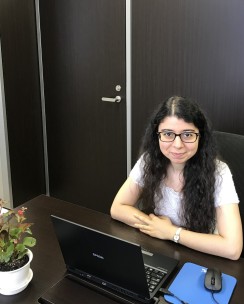
トルコ出身。中東工科大学(心理学科)という国立の技術系大学を卒業後、同大学修士課程へ入学(社会心理学科)、テラー・マネジメント理論の文化的世界観・死の顕現化仮説に関する研究を行う。心理学科ではリサーチアシスタントも務める。アンカラ大学修士課程卒業後、文部科学省奨学金で岡山大学社会文化科学研究科(社会心理学科)へ。博士課程に進み、在留トルコ人留学生のアカデミックカルチャーショック・異文化適応に関する研究を行う。
2020年4月~橋本財団ソシエタス総合研究所の研究員として勤務。
トルコ出身。中東工科大学(心理学科)という国立の技術系大学を卒業後、同大学修士課程へ入学(社会心理学科)、テラー・マネジメント理論の文化的世界観・死の顕現化仮説に関する研究を行う。心理学科ではリサーチアシスタントも務める。アンカラ大学修士課程卒業後、文部科学省奨学金で岡山大学社会文化科学研究科(社会心理学科)へ。博士課程に進み、在留トルコ人留学生のアカデミックカルチャーショック・異文化適応に関する研究を行う。
2020年4月~橋本財団ソシエタス総合研究所の研究員として勤務。
Recently Popular最近よく読まれている記事
-

食べていても痩せる 高齢者終末期のカヘキシア(悪液質)
食べていても痩せる。活発に運動を続けている人なら不思議に思わないが、介護度の高い高齢者にそのようなことが果たして起こるのだろうか。起こるのであれば、それはカヘキシアという病態であれば説明できる。 カヘキシア(悪液質)カヘキシアとは、食欲不振・体重減少・全身衰弱・倦怠感などを呈し、生命予後やQOL(qualit… -

終末期の自然な経過を見極めるとは
長期に渡り胃ろうからの栄養を続けていると、注入した物が食道へ逆流したり、唾液や痰の貯留が増えたりして、吸引を繰り返すことになるが、結局のところ、頻回の吸引も間に合わず、心肺停止状態で発見されることが多い。これでは看取りとは言えない。ここに至るまでの言葉を語れない人の苦しみ。このような事態を避ける智慧… -

自閉症スペクトラムと呼ばれているような障害は、実は障害ではない。生物としての人類のバリエーション(変異)の一つである。
自閉症スペクトラムと呼ばれているような障害は、実は障害ではない。生物としての人類のバリエーション(変異)の一つである。本来は人類の、生息環境に対する適応の一つのあり方だというのが、ニューロダイバーシテイ(脳多様性)という考え方に他ならない(詳しくは正高信男著『ニューロダイバーシテイと発達障害』(北大… -

社会保障分野での普遍主義と選別主義について
介護保険や医療保険では、貧富にかかわらず保険によって9割が給付(自己負担は1割)あるいは、7割が給付(自己負担は3割)される。この様な社会保障の方式は、「普遍主義」といわれている。「普遍主義」は、義務教育や、最近では高等学校の授業料にも適応されている(この場合も裕福な人も貧しい人も同様に無償である)。反… -

飲まず食わず(自発的飲食中止)という選択、VSEDをご存知ですか?
前回(Opinionsで9月24日配信記事)は有馬斉氏による安楽死の分類と、我が国の現状についてお伝えしました。また我が国においては、医師の致死的薬剤の処方による積極的安楽死は、法的に支持されていないということもお話ししました。諸外国では医師による致死的薬剤処方による安楽死が認められている国もありますが、もち… -

医療崩壊
ある日の外来。朝の9時から診察室に座りっぱなしでそろそろ3時間が経過。既に再診患だけではなく、その日の新患も回ってきます。で、そうした中に問題のおじさんがいました。「今、○○クリニックで薬をもらっていまして・・・」「30日分貰っているのですが、お腹が痛くなったので、診てもらいに来ました」「○○先生の紹介…
Writer ライター
-
 受賞作品Opinionsエッセイ
受賞作品OpinionsエッセイOpinionsエッセイの記事を見る
-
 ペンネーム東沖 和季
ペンネーム東沖 和季東沖 和季の記事を見る
-
 ニセコ在住下田 伸一
ニセコ在住下田 伸一下田 伸一の記事を見る
-
 ペンネーム 看護師宇梶 正
ペンネーム 看護師宇梶 正宇梶 正の記事を見る
-
 武蔵野大学大学院大谷 航介
武蔵野大学大学院大谷 航介大谷 航介の記事を見る
-
 一般社団法人村楽東 大史
一般社団法人村楽東 大史東 大史の記事を見る
-
 会社員池松 俊哉
会社員池松 俊哉池松 俊哉の記事を見る
-
 (公財)橋本財団研究助成 成果報告
(公財)橋本財団研究助成 成果報告研究助成 成果報告の記事を見る
-
 横浜市立大学小林 天音
横浜市立大学小林 天音小林 天音の記事を見る
-
 東京西徳洲会病院小児医療センター 小児神経科医師秋谷 進
東京西徳洲会病院小児医療センター 小児神経科医師秋谷 進秋谷 進の記事を見る
-
 公益財団法人地方自治総合研究所 常任研究員坂本 誠
公益財団法人地方自治総合研究所 常任研究員坂本 誠坂本 誠の記事を見る
-
 ペンネームAurora
ペンネームAuroraAuroraの記事を見る
-
 つむぐ株式会社 代表取締役竹村 仁量
つむぐ株式会社 代表取締役竹村 仁量竹村 仁量の記事を見る
-
 岡山大学学術研究院医歯薬学域長谷井 嬢
岡山大学学術研究院医歯薬学域長谷井 嬢長谷井 嬢の記事を見る
-
 ソシエタス総合研究所 研究員Karki Shyam Kumar (カルキ シャム クマル)
ソシエタス総合研究所 研究員Karki Shyam Kumar (カルキ シャム クマル)Karki Shyam Kumar (カルキ シャム クマル)の記事を見る
-
 NPO法人妊娠しぇるとSOS 理事長小林 智子
NPO法人妊娠しぇるとSOS 理事長小林 智子小林 智子の記事を見る
-
 書きたい人のためのwebマガジンOpinions編集部
書きたい人のためのwebマガジンOpinions編集部Opinions編集部の記事を見る
-
 介護福祉士渡口 将生
介護福祉士渡口 将生渡口 将生の記事を見る
-
 相談支援専門員・福祉ネイリストゆき
相談支援専門員・福祉ネイリストゆきゆきの記事を見る
-
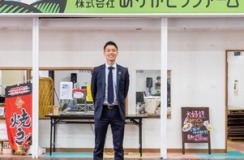 株式会社ありがとうファーム取締役副社長馬場 拓郎
株式会社ありがとうファーム取締役副社長馬場 拓郎馬場 拓郎の記事を見る
-
 ジャーナリスト ペンネームジョワキン
ジャーナリスト ペンネームジョワキンジョワキンの記事を見る
-
 ソシエタス総合研究所 研究員Andi Holik Ramdani(アンディ ホリック ラムダニ)
ソシエタス総合研究所 研究員Andi Holik Ramdani(アンディ ホリック ラムダニ)Andi Holik Ramdani(アンディ ホリック ラムダニ)の記事を見る
-
 ソシエタス総合研究所 研究員Waode Hanifah Istiqomah(ワオデ ハニファー イスティコマー)
ソシエタス総合研究所 研究員Waode Hanifah Istiqomah(ワオデ ハニファー イスティコマー)Waode Hanifah Istiqomah(ワオデ ハニファー イスティコマー)の記事を見る
-
 元芝園団地自治会岡﨑 広樹
元芝園団地自治会岡﨑 広樹岡﨑 広樹の記事を見る
-
 岡山外語学院留学生カーン エムディ マムン
岡山外語学院留学生カーン エムディ マムンカーン エムディ マムンの記事を見る
-
 行政書士板垣 岳人
行政書士板垣 岳人板垣 岳人の記事を見る
-
 Crimson Education教育コンサルタント蘇 暁辰(Xiaochen Su)
Crimson Education教育コンサルタント蘇 暁辰(Xiaochen Su)蘇 暁辰(Xiaochen Su)の記事を見る
-
 神戸大学准教授斉藤 善久
神戸大学准教授斉藤 善久斉藤 善久の記事を見る
-
 ドイツ在住阿部プッシェル 薫
ドイツ在住阿部プッシェル 薫阿部プッシェル 薫の記事を見る
-
 ライター/編集者黒部 麻子
ライター/編集者黒部 麻子黒部 麻子の記事を見る
-
 翻訳家田尻 潤子
翻訳家田尻 潤子田尻 潤子の記事を見る
-
 アブダビ環境庁長官 Environment Agency – Abu Dhabi (ead.gov.ae)シャイカ・サレム・アル・ダヘリ
アブダビ環境庁長官 Environment Agency – Abu Dhabi (ead.gov.ae)シャイカ・サレム・アル・ダヘリシャイカ・サレム・アル・ダヘリの記事を見る
-
 元整形外科医/農園主散木洞人
元整形外科医/農園主散木洞人散木洞人の記事を見る
-
 豊橋技術科学大学パク ミンジョン
豊橋技術科学大学パク ミンジョンパク ミンジョンの記事を見る
-
 生理革命委員会澤田まりあ、山形萌花、山領珊南
生理革命委員会澤田まりあ、山形萌花、山領珊南澤田まりあ、山形萌花、山領珊南の記事を見る
-
 SOMPOケア株式会社藤田 定司
SOMPOケア株式会社藤田 定司藤田 定司の記事を見る
-
 おかやま山陽高等学校橘 里香サニヤ
おかやま山陽高等学校橘 里香サニヤ橘 里香サニヤの記事を見る
-
 ソシエタス総合研究所 研究員坂入 悦子
ソシエタス総合研究所 研究員坂入 悦子坂入 悦子の記事を見る
-
 Hiro山下行政書士国際法務事務所 代表山下裕司
Hiro山下行政書士国際法務事務所 代表山下裕司山下裕司の記事を見る
-
 ソシエタス総合研究所 研究員Niklas Holzapfel ホルツ アッペル ニクラス
ソシエタス総合研究所 研究員Niklas Holzapfel ホルツ アッペル ニクラスNiklas Holzapfel ホルツ アッペル ニクラスの記事を見る
-
 サウンドエンジニアEmre・Ekici エムレ・エキジ
サウンドエンジニアEmre・Ekici エムレ・エキジEmre・Ekici エムレ・エキジの記事を見る
-
 NPO法人岡山県国際団体協議会
NPO法人岡山県国際団体協議会岡山県国際団体協議会の記事を見る
-
 岡山大学 学術研究院 社会文化科学学域 教授東條 光彦
岡山大学 学術研究院 社会文化科学学域 教授東條 光彦東條 光彦の記事を見る
-
 福岡大学 名誉教授田村 和夫
福岡大学 名誉教授田村 和夫田村 和夫の記事を見る
-
 ソシエタス総合研究所 研究員相川 真穂
ソシエタス総合研究所 研究員相川 真穂相川 真穂の記事を見る
-
 一般社団法人京都総合科学研究所 アドバイザー松村 道郎
一般社団法人京都総合科学研究所 アドバイザー松村 道郎松村 道郎の記事を見る
-
 ワラム株式会社 代表取締役加藤 侑子
ワラム株式会社 代表取締役加藤 侑子加藤 侑子の記事を見る
-
 岡山市立操南中学校 教諭/NPO法人国際協力研究所・岡山代表理事竹島 潤
岡山市立操南中学校 教諭/NPO法人国際協力研究所・岡山代表理事竹島 潤竹島 潤の記事を見る
-
 新西横浜街の予防医療ケア研究室 保健師・看護師・元先端バイオ創薬ベンチャー取締役五十嵐 直敬
新西横浜街の予防医療ケア研究室 保健師・看護師・元先端バイオ創薬ベンチャー取締役五十嵐 直敬五十嵐 直敬の記事を見る
-
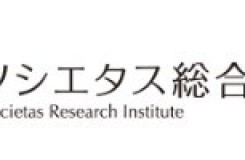 共著橋本俊明・秋吉湖音
共著橋本俊明・秋吉湖音橋本俊明・秋吉湖音の記事を見る
-
 ライター菊池 洋勝
ライター菊池 洋勝菊池 洋勝の記事を見る
-
 大東文化大学国際関係学部・特任教授 高崎経済大学経済学部・非常勤講師 目白大学経営学部経営学科&目白大学大学院経営学研究科 非常勤講師 長崎県佐世保市役所 経済活性化~産業振興に関するアドバイザー、博士(経済学)江崎 康弘
大東文化大学国際関係学部・特任教授 高崎経済大学経済学部・非常勤講師 目白大学経営学部経営学科&目白大学大学院経営学研究科 非常勤講師 長崎県佐世保市役所 経済活性化~産業振興に関するアドバイザー、博士(経済学)江崎 康弘江崎 康弘の記事を見る
-
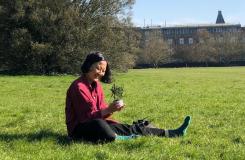 ソシエタス総合研究所 研究員秋吉 湖音
ソシエタス総合研究所 研究員秋吉 湖音秋吉 湖音の記事を見る
-
 JICA専門家足立 伸也
JICA専門家足立 伸也足立 伸也の記事を見る
-
 富士通株式会社 第三ファイナンス事業本部 シニアマネージャー安留 義孝
富士通株式会社 第三ファイナンス事業本部 シニアマネージャー安留 義孝安留 義孝の記事を見る
-
 EDAS(イーダス)理事長田村 拓
EDAS(イーダス)理事長田村 拓田村 拓の記事を見る
-
 監督・プロデューサー湯浅 典子
監督・プロデューサー湯浅 典子湯浅 典子の記事を見る
-
 日本経済大学 准教授山下 誠矢
日本経済大学 准教授山下 誠矢山下 誠矢の記事を見る
-
 人と医療の研究室 代表池尻 達紀
人と医療の研究室 代表池尻 達紀池尻 達紀の記事を見る
-
 一般社団法人飛島学園 代表理事堂野 博之
一般社団法人飛島学園 代表理事堂野 博之堂野 博之の記事を見る
-
 ニッセイ基礎研究所 生活研究部 主任研究員、ヘルスケアリサーチセンター・ジェロントロジー推進室兼任金 明中
ニッセイ基礎研究所 生活研究部 主任研究員、ヘルスケアリサーチセンター・ジェロントロジー推進室兼任金 明中金 明中の記事を見る
-
 医療法人財団足立病院 理事長、社会福祉法人あだち福祉会 理事長畑山 博
医療法人財団足立病院 理事長、社会福祉法人あだち福祉会 理事長畑山 博畑山 博の記事を見る
-
 教育研究家、合同会社ライフ&ワーク代表妹尾 昌俊
教育研究家、合同会社ライフ&ワーク代表妹尾 昌俊妹尾 昌俊の記事を見る
-
 ハーバード大学ベス・イスラエル・ディーコネス・メディカルセンター、高度消化管/最小侵襲外科フェロー中元 啓太郎
ハーバード大学ベス・イスラエル・ディーコネス・メディカルセンター、高度消化管/最小侵襲外科フェロー中元 啓太郎中元 啓太郎の記事を見る
-
 ソシエタス総合研究所 主任研究員井上 登紀子
ソシエタス総合研究所 主任研究員井上 登紀子井上 登紀子の記事を見る
-
 ソシエタス総合研究所 研究員松田 郁乃
ソシエタス総合研究所 研究員松田 郁乃松田 郁乃の記事を見る
-
 ソシエタス総合研究所 研究員アイシェ・ウルグン・ソゼン Ayse Ilgin Sozen
ソシエタス総合研究所 研究員アイシェ・ウルグン・ソゼン Ayse Ilgin Sozenアイシェ・ウルグン・ソゼン Ayse Ilgin Sozenの記事を見る
-
 NPO法人岡山市子どもセンター 事務局久川 春菜
NPO法人岡山市子どもセンター 事務局久川 春菜久川 春菜の記事を見る
-
 ユースワーカー(Youth Woker)森分 志学
ユースワーカー(Youth Woker)森分 志学森分 志学の記事を見る
-
 ペンネーム三村 喜久雄
ペンネーム三村 喜久雄三村 喜久雄の記事を見る
-
 ペンネーム黒木 洋一郎
ペンネーム黒木 洋一郎黒木 洋一郎の記事を見る
-
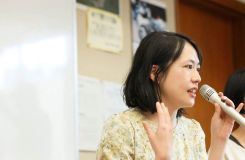 NPO法人チャリティーサンタ 理事河津 泉
NPO法人チャリティーサンタ 理事河津 泉河津 泉の記事を見る
-
 金沢大学人間社会学域地域創造学類・准教授 、特定非営利活動法人国土利用再編研究所・理事長林 直樹
金沢大学人間社会学域地域創造学類・准教授 、特定非営利活動法人国土利用再編研究所・理事長林 直樹林 直樹の記事を見る
-
 認定NPO法人ペアレント・サポートすてっぷ理事長安藤希代子
認定NPO法人ペアレント・サポートすてっぷ理事長安藤希代子安藤希代子の記事を見る
-
 カリフォルニア大学サンフランシスコ校小児胸部心臓外科教授佐野俊二
カリフォルニア大学サンフランシスコ校小児胸部心臓外科教授佐野俊二佐野俊二の記事を見る
-
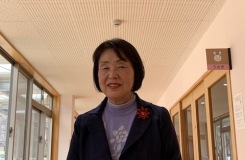 社会福祉法人 旭川荘 ひらたえがお保育園 園長江田 加代子
社会福祉法人 旭川荘 ひらたえがお保育園 園長江田 加代子江田 加代子の記事を見る
-
 NPO法人 おかやまUFE 副理事長 ・NPO法人 おかやまUFE 事務局阪井 ひとみ・永松千恵
NPO法人 おかやまUFE 副理事長 ・NPO法人 おかやまUFE 事務局阪井 ひとみ・永松千恵阪井 ひとみ・永松千恵 の記事を見る
-
 社会学者 東京大学名誉教授 認定NPO法人ウィメンズアクションネットワーク(WAN)理事長 上野 千鶴子
社会学者 東京大学名誉教授 認定NPO法人ウィメンズアクションネットワーク(WAN)理事長 上野 千鶴子上野 千鶴子 の記事を見る
-
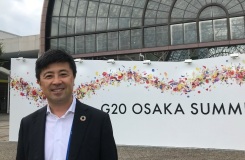 外務省 国際保健政策室長 鷲見 学
外務省 国際保健政策室長 鷲見 学鷲見 学の記事を見る
-
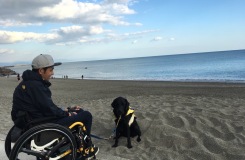 プロ・アダプティブ・サーファー藤原(旧姓:川上)智貴
プロ・アダプティブ・サーファー藤原(旧姓:川上)智貴藤原(旧姓:川上)智貴の記事を見る
-
 京都大学霊長類研究所 教授正高信男
京都大学霊長類研究所 教授正高信男正高信男の記事を見る
-
 社会医療法人石川記念会HITO病院緩和ケア内科統括部長大坂巌
社会医療法人石川記念会HITO病院緩和ケア内科統括部長大坂巌大坂巌の記事を見る
-
 東京医療学院大学保健医療学部教授上田 諭
東京医療学院大学保健医療学部教授上田 諭上田 諭の記事を見る
-
 「夢を叶える145」ライター宮村孝博
「夢を叶える145」ライター宮村孝博宮村孝博の記事を見る
-
 NPO法人 Anneの家 代表 美作地区里親会会員松本芳也・淳子夫妻
NPO法人 Anneの家 代表 美作地区里親会会員松本芳也・淳子夫妻松本芳也・淳子夫妻の記事を見る
-
 特定非営利活動法人あかね 代表理事中山 遼
特定非営利活動法人あかね 代表理事中山 遼中山 遼の記事を見る
-
 大阪市立総合医療センター 緩和医療科部長 兼 緩和ケアセンター長 大阪市立大学医学部臨床准教授 一般社団法人「こどものホスピスプロジェクト」常務理事 日本小児科学会専門医 英国カーディフ大学緩和ケア認定医(Certificate in Palliative Care) 日本緩和医療学会暫定多田羅竜平
大阪市立総合医療センター 緩和医療科部長 兼 緩和ケアセンター長 大阪市立大学医学部臨床准教授 一般社団法人「こどものホスピスプロジェクト」常務理事 日本小児科学会専門医 英国カーディフ大学緩和ケア認定医(Certificate in Palliative Care) 日本緩和医療学会暫定多田羅竜平多田羅竜平の記事を見る
-
 NPO法人 岡山マインド「こころ」/代表理事 一般社団法人お互いさま・まびラボ/副代表理事多田伸志
NPO法人 岡山マインド「こころ」/代表理事 一般社団法人お互いさま・まびラボ/副代表理事多田伸志多田伸志の記事を見る
-
 一般社団法人MY TREE代表理事 MY TREEペアレンツ・プログラムスーパーバイザー 認定フェミニストカウンセラー (公認心理師)中川和子
一般社団法人MY TREE代表理事 MY TREEペアレンツ・プログラムスーパーバイザー 認定フェミニストカウンセラー (公認心理師)中川和子中川和子の記事を見る
-
 兵庫県立ひょうごこころの医療センター精神科医師小田 陽彦
兵庫県立ひょうごこころの医療センター精神科医師小田 陽彦小田 陽彦の記事を見る
-
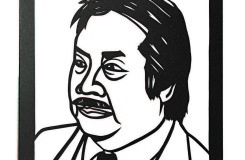 独立行政法人国立病院機構福山医療センター院長岩垣博己・堀井城一朗・矢野 平
独立行政法人国立病院機構福山医療センター院長岩垣博己・堀井城一朗・矢野 平岩垣博己・堀井城一朗・矢野 平の記事を見る
-
 岡山大学 教授 文学部長田中 共子
岡山大学 教授 文学部長田中 共子田中 共子の記事を見る
-
 Civil Engineer (仕組みつくりの技術者)石田篤史
Civil Engineer (仕組みつくりの技術者)石田篤史石田篤史の記事を見る
-
 一般財団法人キヤノングローバル戦略研究所 研究主幹・経済学博士松山幸弘
一般財団法人キヤノングローバル戦略研究所 研究主幹・経済学博士松山幸弘松山幸弘の記事を見る
-
 岡山大学生殖補助医療技術教育研究センター ART教育研究部門長・教授舟橋 弘晃
岡山大学生殖補助医療技術教育研究センター ART教育研究部門長・教授舟橋 弘晃舟橋 弘晃の記事を見る
-
 医療法人サンズ理事長浅野 直
医療法人サンズ理事長浅野 直浅野 直の記事を見る
-
 株式会社ヘリオス 代表執行役社長CEO鍵本忠尚
株式会社ヘリオス 代表執行役社長CEO鍵本忠尚鍵本忠尚の記事を見る
-
 慶應義塾大学文学部人間科学専攻教授(医療人類学) McGill大学人類学部・医療社会研究学部Ph.D.北中淳子
慶應義塾大学文学部人間科学専攻教授(医療人類学) McGill大学人類学部・医療社会研究学部Ph.D.北中淳子北中淳子の記事を見る
-
 岡山大学病院 緩和支持医療科片山英樹
岡山大学病院 緩和支持医療科片山英樹片山英樹の記事を見る
-
 岡山市役所 保健福祉企画総務課松岡克朗
岡山市役所 保健福祉企画総務課松岡克朗松岡克朗の記事を見る
-
 近現代史研究家青木康嘉
近現代史研究家青木康嘉青木康嘉の記事を見る
-
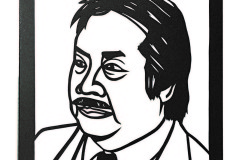 独立行政法人国立病院機構福山医療センター院長岩垣博己・長谷川利路・中島正勝
独立行政法人国立病院機構福山医療センター院長岩垣博己・長谷川利路・中島正勝岩垣博己・長谷川利路・中島正勝の記事を見る
-
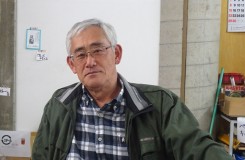 岡山高等学院 副校長 水野文一郎
岡山高等学院 副校長 水野文一郎水野文一郎の記事を見る
-
 社会の仕組み屋、社会の編集者石原 達也
社会の仕組み屋、社会の編集者石原 達也石原 達也の記事を見る
-
 一般社団法人SGSG理事長/中国学園大学子ども学部講師野村泰介
一般社団法人SGSG理事長/中国学園大学子ども学部講師野村泰介野村泰介の記事を見る
-
 一橋大学経済研究所 教授神林 龍
一橋大学経済研究所 教授神林 龍神林 龍の記事を見る
-
 特定医療法人自由会 理事 (社会福祉法人敬友会 理事、公益財団法人橋本財団 理事)橋本 健二
特定医療法人自由会 理事 (社会福祉法人敬友会 理事、公益財団法人橋本財団 理事)橋本 健二橋本 健二の記事を見る
-
 医療法人社団 岡山二人クリニック 理事長、医学博士林 伸旨
医療法人社団 岡山二人クリニック 理事長、医学博士林 伸旨林 伸旨の記事を見る
-
 フリーライター渡辺嗣郎(わたなべ しろう)
フリーライター渡辺嗣郎(わたなべ しろう)渡辺嗣郎(わたなべ しろう)の記事を見る
-
 国立大学法人岡山大学 副理事(国際担当)横井 篤文
国立大学法人岡山大学 副理事(国際担当)横井 篤文横井 篤文の記事を見る
-
 ペンネームドクターX
ペンネームドクターXドクターXの記事を見る
-
 NPO法人 山村エンタープライズ 代表理事藤井裕也
NPO法人 山村エンタープライズ 代表理事藤井裕也藤井裕也の記事を見る
-
 キャンサー・ソリューションズ株式会社 代表取締役社長桜井 なおみ
キャンサー・ソリューションズ株式会社 代表取締役社長桜井 なおみ桜井 なおみの記事を見る
-
 AMDA(アムダ) グループ代表・認定非営利活動法人AMDA 理事長菅波 茂
AMDA(アムダ) グループ代表・認定非営利活動法人AMDA 理事長菅波 茂菅波 茂の記事を見る
-
 ふれあい歯科ごとう代表五島 朋幸
ふれあい歯科ごとう代表五島 朋幸五島 朋幸の記事を見る
-
 介護従事者髙田 浩一
介護従事者髙田 浩一髙田 浩一の記事を見る
-
 ケアマネ-ジャー・社会福祉士かえる ちから
ケアマネ-ジャー・社会福祉士かえる ちからかえる ちからの記事を見る
-
 五常・アンド・カンパニー株式会社 代表取締役社長慎 泰俊
五常・アンド・カンパニー株式会社 代表取締役社長慎 泰俊慎 泰俊の記事を見る
-
 NPO法人 ポケットサポート代表理事三好 祐也
NPO法人 ポケットサポート代表理事三好 祐也三好 祐也の記事を見る
-
 医療法人 寺田病院 院長板野 聡
医療法人 寺田病院 院長板野 聡板野 聡の記事を見る
-
 鳥取市立病院 地域医療総合支援センター 生活支援室 副室長、リハビリテーション部 副部長、歯科 医長目黒 道生
鳥取市立病院 地域医療総合支援センター 生活支援室 副室長、リハビリテーション部 副部長、歯科 医長目黒 道生目黒 道生の記事を見る
-
 鳥取市立病院地域医療総合支援センター長 鳥取市福祉部参与足立 誠司
鳥取市立病院地域医療総合支援センター長 鳥取市福祉部参与足立 誠司足立 誠司の記事を見る
-
 ペンネーム池井戸 高志
ペンネーム池井戸 高志池井戸 高志の記事を見る
-
 ペンネーム池田 出水
ペンネーム池田 出水池田 出水の記事を見る
-
 岡山大学大学院ヘルスシステム統合科学研究科教授松岡 順治
岡山大学大学院ヘルスシステム統合科学研究科教授松岡 順治松岡 順治の記事を見る
-
 鳥取市立病院 名誉院長田中 紀章
鳥取市立病院 名誉院長田中 紀章田中 紀章の記事を見る
-
 岡山大学大学院保健学研究科 副研究科長 教授齋藤 信也
岡山大学大学院保健学研究科 副研究科長 教授齋藤 信也齋藤 信也の記事を見る
-
 公益財団法人橋本財団 理事長、医学博士橋本 俊明
公益財団法人橋本財団 理事長、医学博士橋本 俊明橋本 俊明の記事を見る





